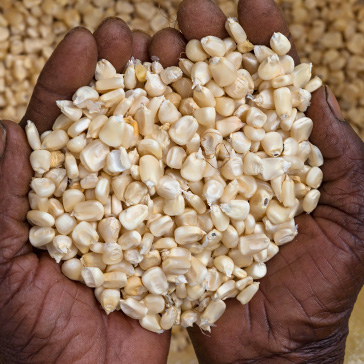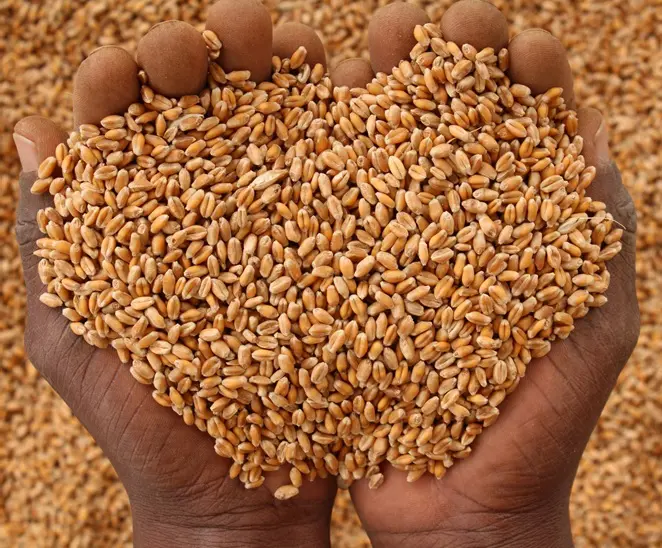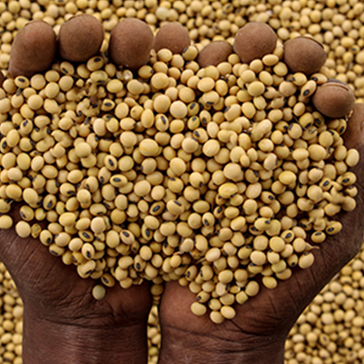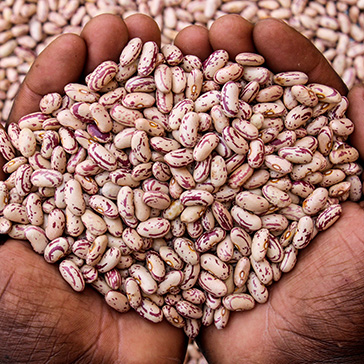Disease Tolerance
Maize
From 1994-1996 Gray Leaf Spot disease (GLS; caused by Cercospora zeae-maydis Tehon and Daniels) which affects maize spread to Zimbabwe from South Africa's KwaZulu Natal. Maize is predominantly grown by small-scale farmers without fungicides, hence, there was need to develop GLS resistant hybrids. Seed Co became the first company to come up with SC 709, a single cross variety which was resistant to the GLS. There is limited information about the mode of inheritance for GLS resistance in regionally adapted germplasm.
Soya Beans
Soya bean Rust is potentially one of the most significant diseases of soya bean. It can spread quickly and cause leaf spots and defoliation of soyabean plants. Under favourable conditions, the pathogen can cause yield losses greater than 50%. Soya bean rust was first found in the continental United States in the South in 2004. Since then, the disease spread and became a global outbreak. However, Seed Co was again the first to release varieties that are resistant such as SC Signal, SC Saxon and SC Sentinel.
Hybridisation
Prior to 1960 and before the green revolution in Asia, farmers were growing open pollinated varieties which would produce very low yields. However, in 1960, Seed Co produced SR52 which is the first single cross maize hybrid to be commercialised in the world, and which forms the basis of maize breeding in Zimbabwe and the Eastern and Southern Africa region.
The experiment was conducted by Allan Rattray and Harry Arnold at the Harare Research Station. And the duo became the pioneers of moving from open pollinated to single cross pollinated variety. Seed Co commercialised this variety first before farmers and researchers in the rest of the world.
We have since evolved to creating new varieties that are doing very well on the markets.
Yield Thrust
Our mission is to Breed, Seed and Feed Africa. Our main vision is to dominate the Seed Business in Africa through developing crop varieties i.e., maize hybrids, soya beans, wheat, sorghum, sugar beans and cow peas, with stable performance across both environments and seasons. However, it is important to note that for Seed Co Limited, the majority of these regional markets are developing countries which are the most vulnerable to climatic change effects due to limited resources to adapt. There is therefore an urgent need to give all farmers hybrids that are adapted to climate change and which will give them the greatest yields. To achieve this, testing of crop varieties is carried out across different agro-ecologies (throughout Africa) to generate extensive genotype by environment interaction data.
Seed Co Limited also recognises the need to develop hybrids that fit specific environmental conditions. In addition, these varieties will also be coming from a background of an intense breeding programme whose focus is to select for abiotic (heat and drought, low nitrogen use efficiency, soil acidity and alkalinity), biotic (foliar and cob diseases) and response to different agronomic practices. Resultant efforts have produced a number of crop varieties which have allowed farmers to easily adapt to the effects of climatic change in their farming systems and achieve highest yields possible.
Top Left Hybrids
Maize hybrid seed provides farmers with varieties containing improved genetics, such as high yield potential and unique trait combinations to counter diseases and adverse growing conditions. However, the quality of hybrid seed depends greatly on field production methods, both in adherence to quality assurance standards and implementation of appropriate agronomic management, coupled with favourable weather conditions. Due to unpredictable weather patterns, Seed Co released varieties that combine high yield with a low duration. These are varieties such as SC301, SC303, SC419 and SC529. Furthermore, these top left hybrids allow the farmer to practice double cropping.
Climate Smart Varieties
It has been our mandate and goal as Seed Co to ensure the development of crop varieties that are better suited to new and ever changing climatic conditions. We have released varieties that have tremendous adaptation capabilities that increase in mean temperature accelerate crop development, resulting in shorter crop durations and reduced time to accumulate biomass and yield. The process of breeding, delivery and adoption of new maize varieties in Seed Co is an on-going process. All our seed varieties that end with a 9 are adapters which are suited to various climatic conditions.

 Zambia
Zambia Zimbabwe
Zimbabwe Malawi
Malawi Botswana
Botswana Nigeria
Nigeria


